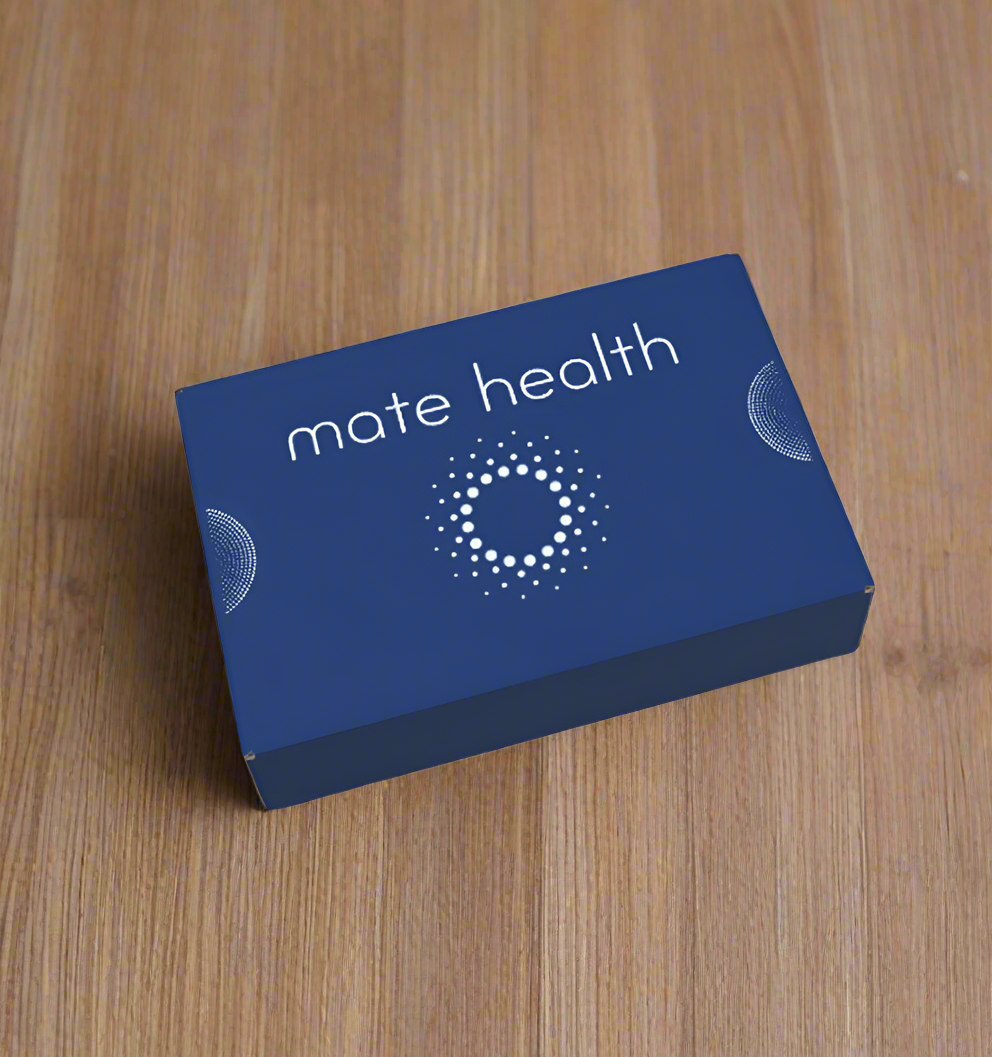
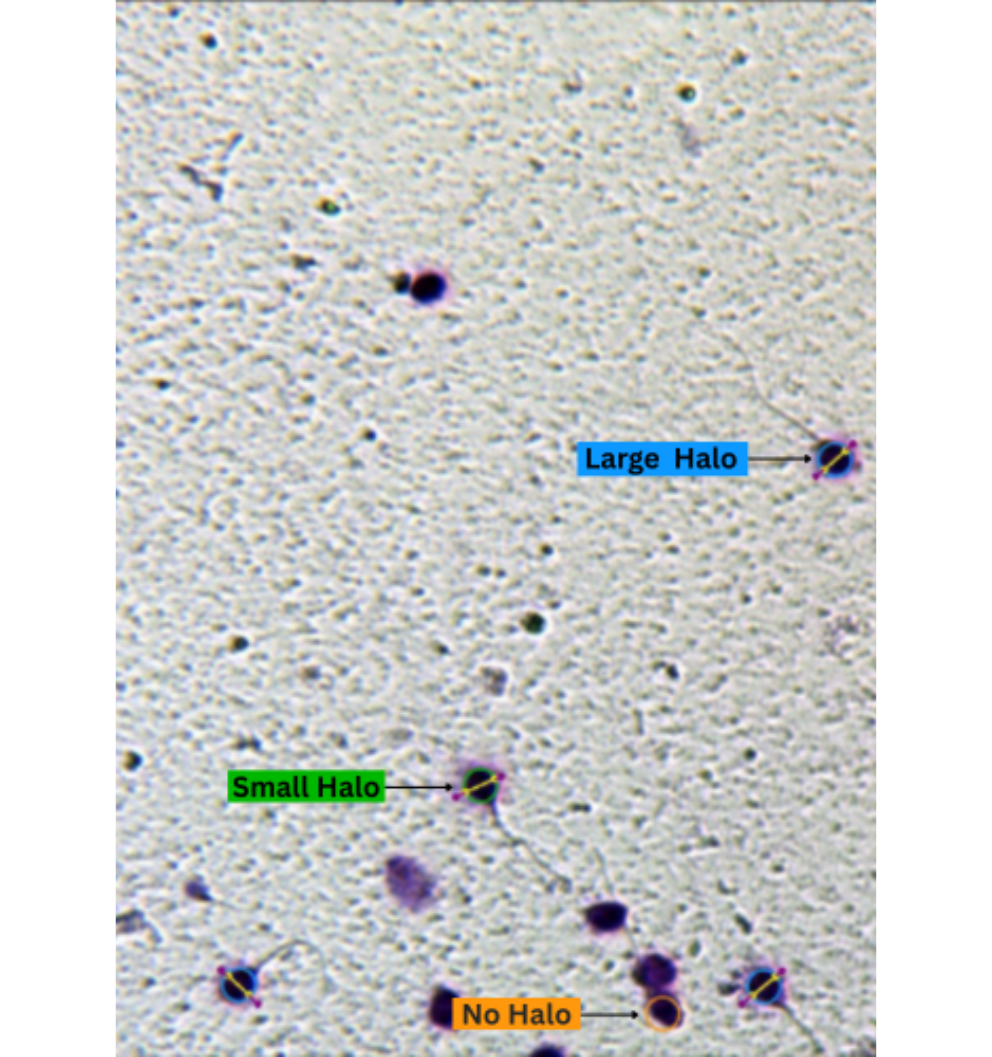
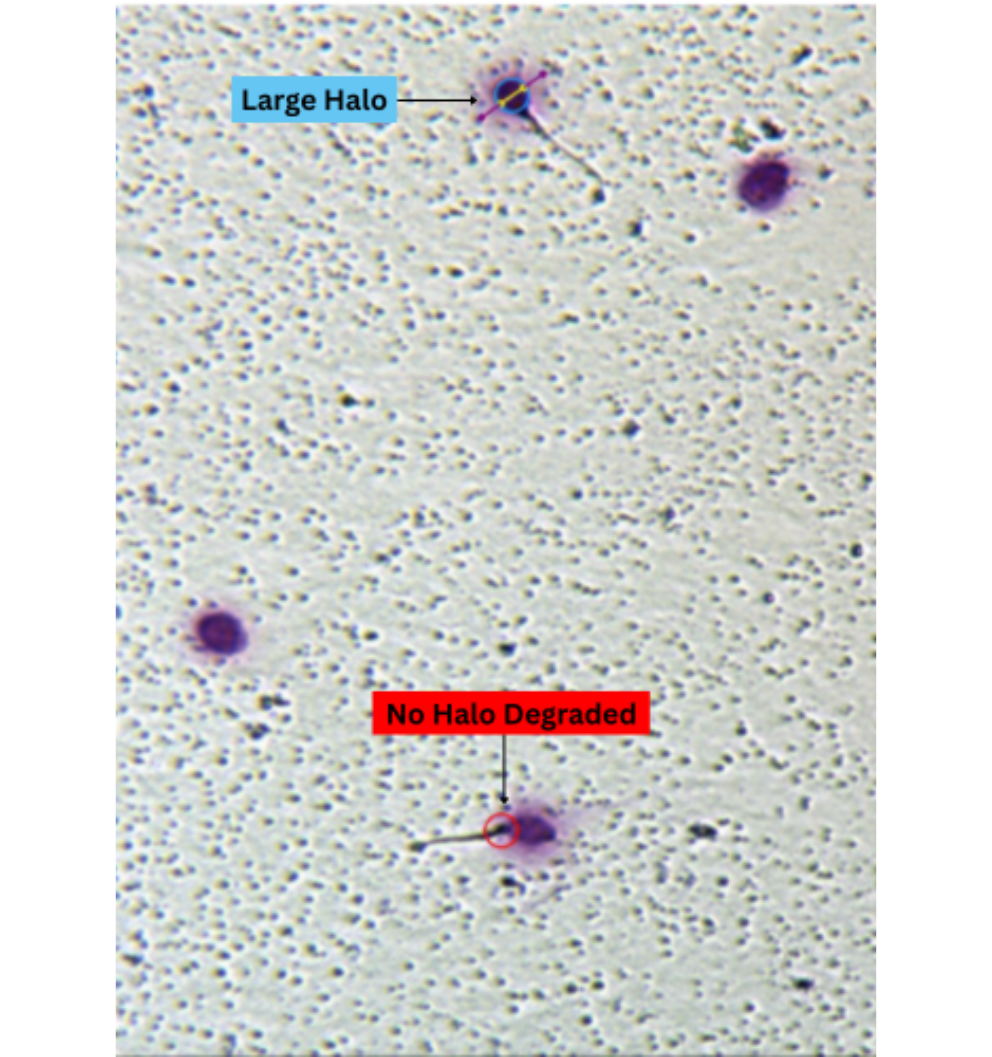
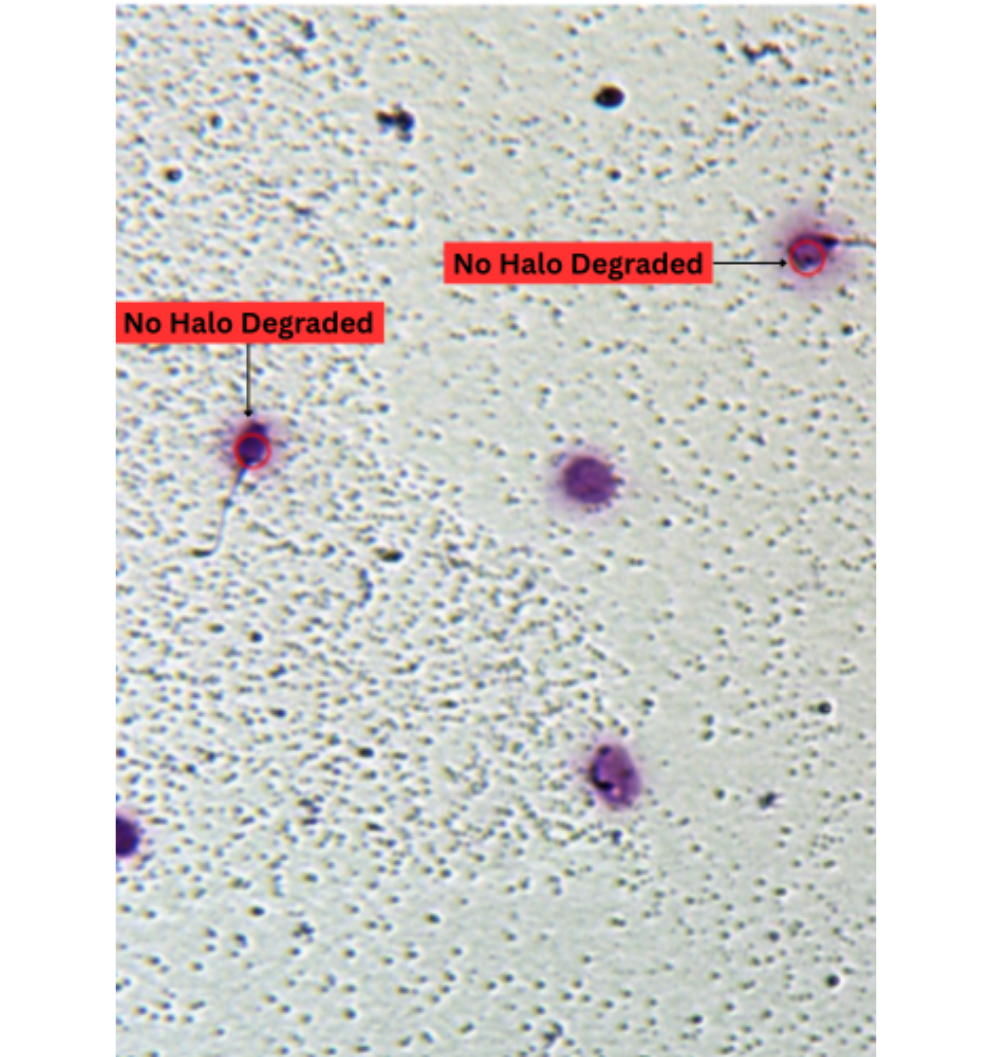
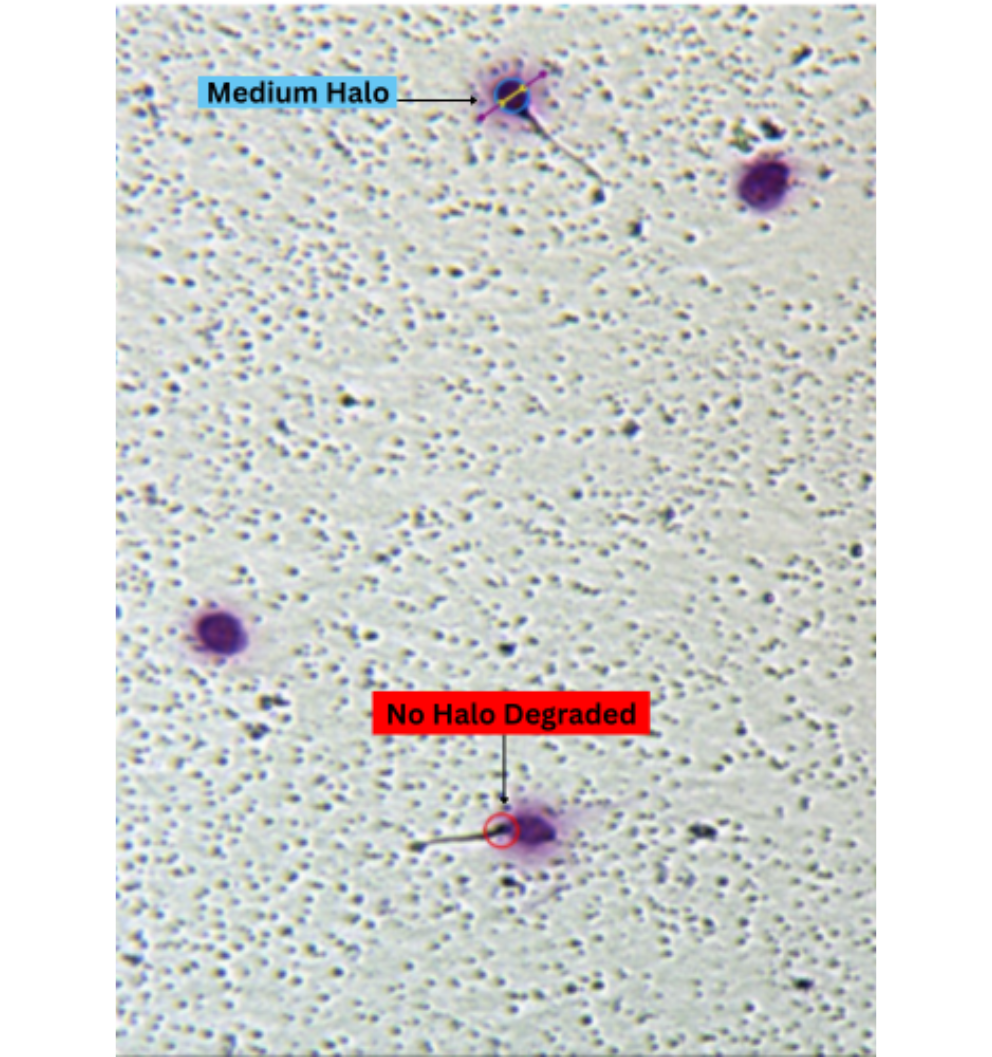










Advanced Semen Analysis
Includes DNA Fragmentation with Complete Semen Analysis
What is sperm DNA fragmentation?
Sperm carry DNA, the genetic blueprint that helps create a healthy baby. DNA fragmentation means that genetic material inside the sperm is damaged or broken. Even if sperm look normal and move well, damaged DNA can affect your chances of getting pregnant and may lead to issues during early pregnancy.
What is DNA Fragmentation Testing?
This test looks at how much DNA damage is present in your sperm. It gives a deeper look into sperm quality beyond what’s seen in our Complete Semen Analysis. Your doctor may recommend this test if:
- You’ve had trouble conceiving for 6+ months
- There have been repeated IVF or ICSI failures
- You’ve experienced recurrent pregnancy loss (miscarriages)
- You have risk factors like smoking, stress, age, or exposure to heat/toxins
What does the test measure?
Sperm Count
Numbers of sperms in the entire sample. Low sperm count decreases the likelihood of conception, especially with other issues.
Motility
The ability of sperm to move effectively. At least 40% should be motile. Low motility reduces fertilization chances.
Morphology
The percentage of sperm with a normal shape. At least 4% should be normal. Abnormal shapes can hinder fertilization.
Volume
The total amount of semen produced in one ejaculation. Low volume can indicate blockages, infections, or prostate issues.
Total Motile Sperm Count(TMSC)
The total number of motile sperm in the sample. Higher TMSC increases fertilization chances, while low TMSC suggest challenges.
Concentration
Numbers of sperm per milliliter of semen. Low concentration (oligospermia) reduces the chances of sperm reaching the egg.
DNA Fragmentation
Measures the percentage of sperm with damaged DNA. High fragmentation levels are linked to fertility challenges and an increased risk of miscarriage.
Top 3 Reasons Why DNA Fragmentation Testing Matters
It shows the quality of your sperm DNA: Standard semen analysis does not provide additional DNA information.
It can help explain why pregnancy hasn’t happened: Even if everything else looks normal, high levels of DNA damage in sperm may prevent successful pregnancies.
It guides your next steps: Your physician can recommend targeted treatments or lifestyle changes to choose the best fertility treatment.
What causes sperm DNA fragmentation?
- Smoking, alcohol, or drug use
- High testicular heat (hot tubs, tight underwear, laptops on lap)
- Poor diet or obesity
- Oxidative stress (damage from unstable molecules in the body)
- Infections or inflammation
- Age or environmental toxins
What do the results mean?
What can I do if DNA damage is high?
Improve your lifestyle
Quit smoking, reduce alcohol, and eat antioxidant-rich foods
Reduce heat exposure
Avoid hot tubs, wear loose underwear
Treat underlying issues
Such as infections or hormone imbalances
Use advanced fertility techniques
Such as ICSI or testicular sperm retrieval
Take antioxidant supplements
(Ask your doctor which are right for you)
Questions to Ask Your Doctor
What is my DNA fragmentation level?
Can I improve my sperm DNA quality?
What are the best treatment or fertility options for me?
DNA fragmentation testing provides a clearer picture of your sperm health and helps your care team find the best path to parenthood.
